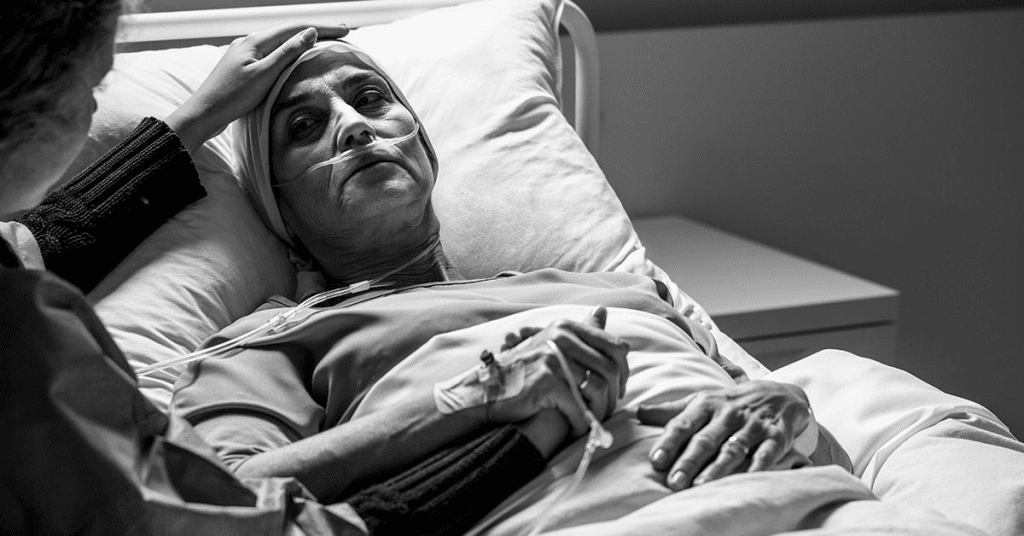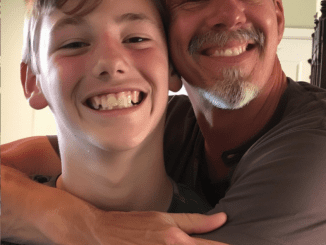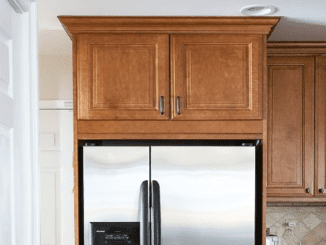Life and death are surprisingly complex elements that often leave people wondering if they are living it “correctly.” Many seek answers in moments of crisis, but what if the answers are found in the words of those who are about to leave this world? A hospice nurse, Jackie McFadden, has shared the last words of over 100 people, shedding light on what’s truly important in life. Her insights offer a unique perspective that may just change how you view your own life.

Nurse Jackie McFadden isn’t just any nurse; she has over 2.5 million followers on social media who tune in to hear her stories and advice. Specializing in “end-of-life” care, Jackie has made it her mission to remove the stigma around death and dying. Her work is more than just a job; it’s a calling to help others navigate the complex emotions surrounding death.
One of the most profound insights Nurse Jackie shares is the importance of gratitude. In a podcast interview with Rob Moore on “Disruptors,” she spoke about her nightly routine with residents, where they create a gratitude list. She mentioned how people often regret not appreciating their health while they had it. This simple yet powerful practice can transform how we perceive life, urging us to cherish the little things before it’s too late.
Even with her daily reminders to others, Nurse Jackie admits that she too takes life for granted at times. The irony is not lost on her. Her profession has given her a unique perspective on the miraculous nature of life and the inevitability of death. Jackie’s reflections remind us that even those who are constantly faced with death can forget to live fully in the moment.
Jackie doesn’t just share what her patients have said; she also offers guidance on how to deal with the concept of death. Her book, “Nothing to Fear,” serves as a tool for those struggling to accept death—whether it’s their own or that of a loved one. Jackie believes that understanding the dying process before it happens can make the experience less terrifying, offering peace of mind during life’s most challenging moments.

Jackie’s experience with death has led her to believe in the afterlife. Before her time in hospice care, she worked in the ICU, another environment where death is a frequent visitor. Her countless experiences with the dying have convinced her that there’s something beyond this life. This belief has given her comfort and a deeper understanding of the cycle of life and death.

While Jackie has many comforting words to share, she’s also brutally honest about the state of healthcare in the U.S. According to her, dying well often requires significant financial resources—a luxury many don’t have. The disparity in care can add an extra layer of stress for families already struggling with the impending loss of a loved one. Jackie’s insights highlight the need for systemic change to ensure that everyone can experience a dignified end of life.
One of Jackie’s specialties is recognizing the signs that death is near. She’s shared several videos on social media to educate families on what to look for, such as shortness of breath and changes in skin color. These signs can help families prepare emotionally and logistically for what’s to come.

Jackie isn’t the only nurse sharing insights on the dying process. According to VeryWellHealth, there are several other signs to be aware of, including:
- Isolation: The person may withdraw from social interactions.
- Pain: Increasing levels of pain that become harder to manage.
- Fatigue: The person may sleep more often and appear extremely tired.
- Loss of Appetite: A decreased desire to eat or drink.
- Dehydration: This can happen quickly as the body shuts down.
- Loss of Muscle Control: Involuntary movements or loss of bladder/bowel control.
- Nausea or Vomiting: These symptoms may become more frequent.
- Confusion or Delirium: The person may become restless, agitated, or disoriented.

In her book and through her work, Jackie emphasizes the importance of emotional support for both the dying and their families. While her book offers valuable insights, many other resources are available to help people cope with the challenges of terminal illness and loss. Support groups, counseling, and hotlines like (800) 658-8898 provide the necessary guidance during these difficult times.

Nurse Jackie McFadden’s experiences offer a rare glimpse into the final moments of life and the profound wisdom that can be gained from them. Her teachings remind us to live with gratitude, to appreciate our health, and to prepare for the inevitable with dignity and grace. While death is a natural part of life, understanding it through the eyes of someone who has witnessed it countless times can help us live more fully.


